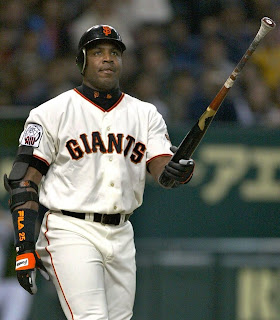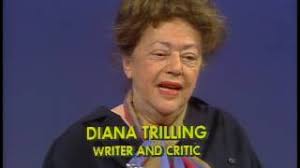1. Barry Bonds
“When you come to the ballpark, you’re walking into a place that is all deception and lies… There’s nothing truthful at the ballpark. Except the game.”
-Barry Bonds
If there’s anyone who’d know it’d be Bonds. One of, by any measure, the four of five greatest players to ever play the game, the Pirates and Giants slugger had long been painted as one of baseball’s principal villains—even before accusations of steroid use came to dog his career and reputation. Surly with the press who in turn helped shape his negative image, perceived as arrogant, he was the man fans loved to root against even as he set record after record and demanded the type of respect from opposing pitchers that had never been seen before. When revelations of widespread PED use across baseball became public and the powers that be demanded blood, Bonds became the obvious scapegoat, the subject of an overwrought decades-long legal case which culminated in his conviction on an obstruction of justice charge which was not overturned until 2015.
The quote above—or rather the two quotes—come from a 2002 profile of the controversial slugger by writer David Grann for the New York Times Magazine. Their immediate contexts are Bonds’ penchant for self-caricature as a defense mechanism and his habit of changing at the ballpark. But a few years later, they would be combined and recontextualized by writer Jeff Chang in his history of hip-hop culture Can’t Stop Won’t Stop. Serving as the epigraph for the book’s first chapter, “Necropolis: The Bronx and the Politics of Abandonment,” the quote(s) immediately proceed Chang’s description of Game 2 of the 1977 World Series, a game famously played amidst the backdrop of burning buildings throughout the Bronx, just blocks from Yankee Stadium.
Chang interweaves his account of the ballgame with a brief history of the racist politics that led to the conflagration in the Bronx as well as the constant racism faced by Yankees star slugger Reggie Jackson among teammates and fans alike. According to Chang, many of Jackson’s fellow (white) Yankees didn’t like him because “they thought [him] too flamboyant,” too arrogant, the same criticisms that were often lobbed against Bonds and which underscored his own conflict with redneck teammate Jeff Kent. By using Bonds’ quote to set the stage for a discussion of explicit racism, Chang asks us to view Bonds’ situation in specifically racial terms, whatever the original context of the quote(s) may have been.
And, in fact, race is the unspoken (or only occasionally spoken) subtext of Barry Bonds’ entire public life. Many less honest sportswriters have always been quick to dismiss Bonds in coded racial terms (that “arrogance” again), while several of the more honest in the profession were happy to point out the racial double standard that’s often applied to the star player. As Dave Zirin notes, “Bonds is not the first athlete to sneer at a reporter or two. In fact, [white player] Mark McGwire was a notoriously surly personality until he was presented to us as a grinning Paul Bunyan.” But it was Bonds who was the primary target of Commissioner Bud Selig’s ire as well as the farcical investigation led by Senator George Mitchell, a fact confirmed by one of Zirin’s inside sources. And, while it would be a stretch to attribute explicitly racist motives to all involved in the investigation, it also can’t be denied that racist attitudes helped shape the public opinion around Bonds, leading to him being singled out for criminal investigation. By combining and recontextualizing a pair of quotes from a 2002 interview, Chang makes the subtext more or less explicit, insisting that Bonds, like Reggie Jackson before him, suffered for being defiant, outspoken, and successful, while, at the same time, being black.
If there’s anyone who’d know it’d be Bonds. One of, by any measure, the four of five greatest players to ever play the game, the Pirates and Giants slugger had long been painted as one of baseball’s principal villains—even before accusations of steroid use came to dog his career and reputation. Surly with the press who in turn helped shape his negative image, perceived as arrogant, he was the man fans loved to root against even as he set record after record and demanded the type of respect from opposing pitchers that had never been seen before. When revelations of widespread PED use across baseball became public and the powers that be demanded blood, Bonds became the obvious scapegoat, the subject of an overwrought decades-long legal case which culminated in his conviction on an obstruction of justice charge which was not overturned until 2015.
The quote above—or rather the two quotes—come from a 2002 profile of the controversial slugger by writer David Grann for the New York Times Magazine. Their immediate contexts are Bonds’ penchant for self-caricature as a defense mechanism and his habit of changing at the ballpark. But a few years later, they would be combined and recontextualized by writer Jeff Chang in his history of hip-hop culture Can’t Stop Won’t Stop. Serving as the epigraph for the book’s first chapter, “Necropolis: The Bronx and the Politics of Abandonment,” the quote(s) immediately proceed Chang’s description of Game 2 of the 1977 World Series, a game famously played amidst the backdrop of burning buildings throughout the Bronx, just blocks from Yankee Stadium.
Chang interweaves his account of the ballgame with a brief history of the racist politics that led to the conflagration in the Bronx as well as the constant racism faced by Yankees star slugger Reggie Jackson among teammates and fans alike. According to Chang, many of Jackson’s fellow (white) Yankees didn’t like him because “they thought [him] too flamboyant,” too arrogant, the same criticisms that were often lobbed against Bonds and which underscored his own conflict with redneck teammate Jeff Kent. By using Bonds’ quote to set the stage for a discussion of explicit racism, Chang asks us to view Bonds’ situation in specifically racial terms, whatever the original context of the quote(s) may have been.
And, in fact, race is the unspoken (or only occasionally spoken) subtext of Barry Bonds’ entire public life. Many less honest sportswriters have always been quick to dismiss Bonds in coded racial terms (that “arrogance” again), while several of the more honest in the profession were happy to point out the racial double standard that’s often applied to the star player. As Dave Zirin notes, “Bonds is not the first athlete to sneer at a reporter or two. In fact, [white player] Mark McGwire was a notoriously surly personality until he was presented to us as a grinning Paul Bunyan.” But it was Bonds who was the primary target of Commissioner Bud Selig’s ire as well as the farcical investigation led by Senator George Mitchell, a fact confirmed by one of Zirin’s inside sources. And, while it would be a stretch to attribute explicitly racist motives to all involved in the investigation, it also can’t be denied that racist attitudes helped shape the public opinion around Bonds, leading to him being singled out for criminal investigation. By combining and recontextualizing a pair of quotes from a 2002 interview, Chang makes the subtext more or less explicit, insisting that Bonds, like Reggie Jackson before him, suffered for being defiant, outspoken, and successful, while, at the same time, being black.



Comments
Post a Comment